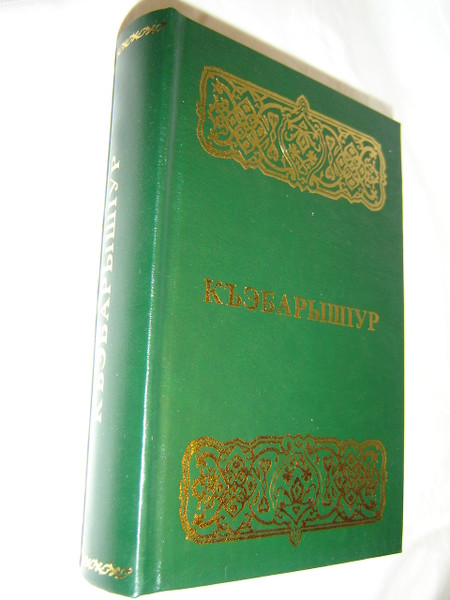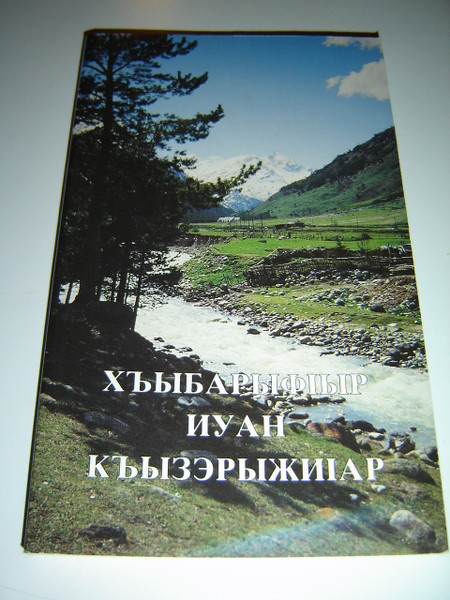Description
New Testament in the Kabardian Language
Kabardian also known as East Circassian, is a Northwest Caucasian language, closely related to the Adyghe language that is spoken mainly in the North Caucasus republics of Kabardino-Balkaria and Karachay-Cherkessia / it is one of very few languages to possess a clear phonemic distinction between ejective affricates and ejective fricatives / 1.6 million speakers
Product Details:
- Hardcover: 736 pages
- Publisher: Institute for Bible Translation (2007)
- Language: Kabardian
- ISBN-10: 9197560251
- ISBN-13: 978-9197560252 / 9789197560252
Summary:
Bridging Cultures: The New Testament in Kabardian Language
A Linguistic and Spiritual Milestone
The translation of the New Testament into the Kabardian language marks a significant cultural and spiritual milestone. Kabardian, also known as East Circassian, is a language that resonates with the history and soul of the North Caucasus, particularly in the republics of Kabardino-Balkaria and Karachay-Cherkessia. This translation not only honors the linguistic richness of Kabardian but also brings the profound teachings of the New Testament closer to its native speakers.
Kabardian: A Language of Unique Characteristics
Kabardian stands out in the linguistic landscape due to its unique phonemic qualities. It is one of the rare languages that make a clear phonemic distinction between ejective affricates and ejective fricatives, showcasing the intricate sound system that defines the language's identity. This feature adds a layer of complexity and beauty to the translation of the New Testament, making it a remarkable achievement in linguistic adaptation.
Spiritual Resonance for 1.6 Million Speakers
The translation of the New Testament into Kabardian is a beacon of faith for the 1.6 million speakers of this language. It provides them with the opportunity to experience the teachings of Christianity in their native tongue, fostering a deeper spiritual connection and understanding. This initiative respects and celebrates the cultural identity of the Kabardian-speaking community, emphasizing the inclusive nature of faith.
Conclusion
The New Testament in Kabardian is not just a book; it's a testament to the enduring power of language and faith. By translating these sacred texts into Kabardian, the Institute for Bible Translation has opened a new chapter in the spiritual lives of many, bridging the gap between ancient teachings and a modern audience. This edition is a precious gift to the Kabardian-speaking community, enabling them to cherish and explore their faith in the language that speaks to their hearts.


















